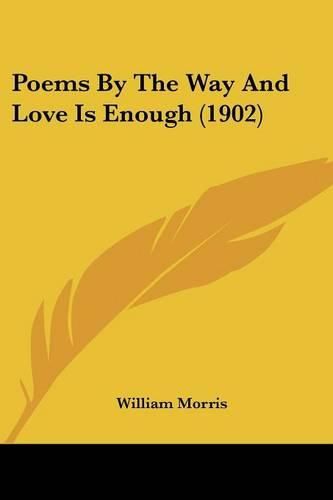Readings Newsletter
Become a Readings Member to make your shopping experience even easier.
Sign in or sign up for free!
You’re not far away from qualifying for FREE standard shipping within Australia
You’ve qualified for FREE standard shipping within Australia
The cart is loading…






William Morris (1834-1896) was an English artist, writer, socialist and activist. He was one of the principal founders of the British arts and crafts movement, best known as a designer of wallpaper and patterned fabrics, a writer of poetry and fiction and a pioneer of the socialist movement in Britain. Morris and his friends formed an artistic movement, the Pre-Raphaelite Brotherhood. They eschewed the tawdry industrial manufacture of decorative arts and architecture and favoured a return to hand-craftsmanship, raising artisans to the status of artists. He espoused the philosophy that art should be affordable, hand-made, and that there should be no hierarchy of artistic mediums. His best-known works are The Defence of Guinevere, and Other Poems (1858), Hopes and Fears for Art (1882), Chants for Socialists (1885), A Dream of John Ball: A King’s Lesson (1888), The House of the Wolfings (1889), Child Christopher and Goldilind the Fair (1895), Old French Romances (1896), The Well at the World’s End (1896), and The Hollow Land (1897).
$9.00 standard shipping within Australia
FREE standard shipping within Australia for orders over $100.00
Express & International shipping calculated at checkout
William Morris (1834-1896) was an English artist, writer, socialist and activist. He was one of the principal founders of the British arts and crafts movement, best known as a designer of wallpaper and patterned fabrics, a writer of poetry and fiction and a pioneer of the socialist movement in Britain. Morris and his friends formed an artistic movement, the Pre-Raphaelite Brotherhood. They eschewed the tawdry industrial manufacture of decorative arts and architecture and favoured a return to hand-craftsmanship, raising artisans to the status of artists. He espoused the philosophy that art should be affordable, hand-made, and that there should be no hierarchy of artistic mediums. His best-known works are The Defence of Guinevere, and Other Poems (1858), Hopes and Fears for Art (1882), Chants for Socialists (1885), A Dream of John Ball: A King’s Lesson (1888), The House of the Wolfings (1889), Child Christopher and Goldilind the Fair (1895), Old French Romances (1896), The Well at the World’s End (1896), and The Hollow Land (1897).